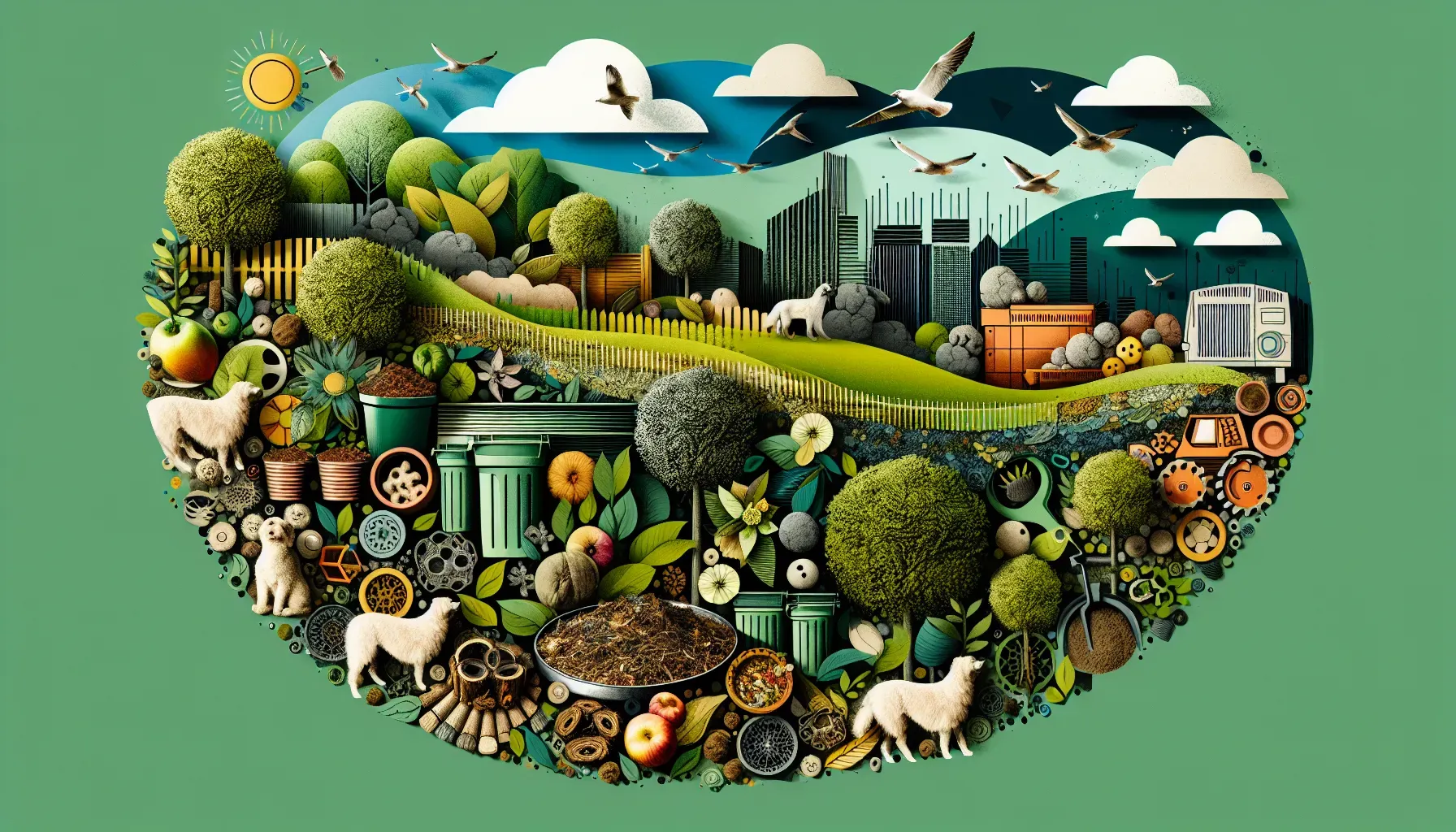From Waste to Resource: Transforming Pet Byproduct Management Practices

Pet waste can pose a considerable environmental challenge if not managed effectively. Traditional disposal methods such as landfills contribute to pollution and contamination of soil and water systems. However, there are eco-friendly alternatives that pet owners can adopt to minimize their environmental footprint.
What Are Biodegradable Waste Bags?
Using biodegradable waste bags for pet waste disposal is an impactful step towards reducing environmental harm. These bags are designed to decompose naturally, mitigating the long-term impact of pet waste on landfills and ecosystems. They offer a sustainable solution without compromising on convenience for pet owners.
Implementing composting systems specifically designed for pet waste can significantly minimize its impact on the environment. These systems facilitate the decomposition of organic matter, transforming pet waste into nutrient-rich compost that can be used in gardening and landscaping. By diverting pet waste from conventional disposal methods, such as curbside trash collection, composting effectively closes the loop on waste management while promoting sustainability.
How Do Waste Composting Systems Work?
Community-driven initiatives can play a pivotal role in promoting eco-friendly waste disposal practices for pets. Establishing waste disposal stations equipped with biodegradable bags in public spaces encourages responsible waste management among pet owners. This approach fosters a sense of environmental stewardship while combatting the negative effects of pet waste on our surroundings.
Benefits of Eco-Friendly Waste Disposal Stations
In line with the global trend towards circular economies, innovative recycling schemes have emerged to harness the potential of pet waste as a valuable resource for creating new products.
Innovative Recycling Schemes for Pet Waste
The development of cat litter made from recycled materials presents a prime example of innovative recycling in the pet care industry. By repurposing natural resources and materials that would otherwise contribute to environmental degradation, sustainable litter products offer an eco-conscious alternative for cat owners while reducing overall waste generation.
Creative entrepreneurs and companies have started utilizing recycled materials, including plastics and fabrics derived from pet byproducts, to manufacture eco-friendly pet toys. By embracing upcycling principles, these ventures demonstrate how waste materials can be transformed into engaging play items for pets, fostering sustainability while satisfying consumer demand for environmentally responsible products.
What Is Sustainable Litter Made From Recycled Materials?
Composting pet waste is gaining traction as a sustainable practice that aligns with the principles of circular economies and ecological balance. Whether through backyard composting or specialized systems tailored for animal byproducts, composting presents an opportunity to integrate pets into sustainable lifestyle choices.
How Are Upcycled Pet Toys Made?
Pet owners can explore various methods for composting pet waste within their own properties. With the right approach and proper management, pet waste can be transformed into a valuable resource for enriching soil fertility and supporting organic gardening endeavors. Implementing backyard composting not only addresses waste management concerns but also promotes a holistic approach to sustainable living.
Related Article: Eco-Friendly Pet Accessories: Infusing Style with Sustainability
Composting Pet Waste for Sustainable Living
Innovations in composting technology have led to the development of specialized systems engineered specifically for processing pet waste. These systems are designed to optimize microbial activity and decomposition processes, ensuring the safe conversion of pet waste into beneficial compost material. Through such dedicated infrastructure, pet owners can actively contribute to reducing their environmental impact while deriving practical benefits from repurposed organic matter.
As awareness regarding environmental conservation grows, the demand for biodegradable products within the pet care industry has surged. From biodegradable litter to compostable food containers, these products play a crucial role in mitigating the environmental impact associated with pet ownership.
What Are Backyard Composting Methods?
Biodegradable cat litters, crafted from renewable materials such as bamboo or recycled paper, have emerged as popular alternatives to traditional clay-based litters. These eco-friendly choices not only offer effective odor control and moisture absorption but also promote sustainability through their biodegradable nature, ultimately contributing to reduced landfill burden.
Why Use Specialized Composting Systems?
Compostable pet waste bags represent a proactive solution for managing pet byproducts with minimal ecological repercussions. These bags, engineered to break down naturally under proper conditions, provide pet owners with an environmentally responsible means of disposing of animal waste. By embracing compostable alternatives, individuals can actively participate in minimizing their carbon footprint while upholding sustainable practices.
The Role of Biodegradable Products in Pet Care
By embracing eco-friendly disposal techniques, adopting innovative recycling schemes, promoting composting practices, and integrating biodegradable products into pet care routines, individuals can contribute to transforming pet byproduct management practices from an environmental concern into a sustainable endeavor. As "Tails' Talks Blog" advocates for responsible and conscientious pet ownership, prioritizing these environmentally sound approaches aligns with our commitment to fostering a harmonious coexistence between pets and the planet.
Frequently Asked Questions
Biodegradable waste bags are designed to decompose naturally, reducing the long-term environmental impact of pet waste. By using these bags, pet owners can minimize pollution and contamination associated with traditional landfill disposal, making them a more sustainable option for managing pet waste.
Composting pet waste transforms it into nutrient-rich compost that can enhance soil fertility. By using backyard composting or specialized systems, pet owners can divert waste from landfills, promote ecological balance, and integrate sustainable practices into their lifestyles, benefiting both gardens and the environment.
Innovative recycling schemes in the pet care industry include creating sustainable cat litter from recycled materials and manufacturing eco-friendly pet toys from upcycled plastics and fabrics. These initiatives not only reduce waste but also provide environmentally responsible products that cater to conscious consumers.






